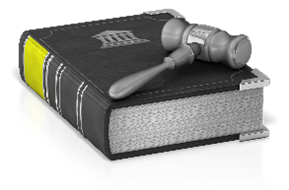
Juvenile Appeals
The superior court (sometimes called the juvenile court) has jurisdiction over many proceedings concerning the welfare of children and family relationships. These include delinquency, incorrigibility, diversion, dependency, emancipation, in-home intervention, extended foster care, Title 8 guardianship, termination of parental rights, and adoption matters. When these proceedings are initiated by the State, the superior court will appoint counsel to represent a party who cannot afford an attorney.
The Court of Appeals hears appeals from certain juvenile court orders that are in writing, signed by the judge, and filed with the clerk. Some orders may be appealed while the superior court proceedings are still ongoing. The Court expects all parties to a juvenile appeal to be familiar with the Arizona Rules of Procedure for Juvenile Courts. In some cases, the Arizona Rules of Civil Appellate Procedure also apply, see Juvenile Rule 602(i). Parties must be familiar with these rules because deadlines in juvenile appeals are often much shorter than those in civil appeals.
To appeal, a party must file a Notice of Appeal within 15 days after the superior court issues the ruling being challenged. The Notice of Appeal must contain certain information, including, if the party is represented by counsel, a statement that counsel has discussed the merits of the appeal with the party and that the party authorized the Notice of Appeal. Juvenile Rule 603. A form for the notice of appeal is available here. If a party is represented by court-appointed counsel, the superior court will generally appoint new counsel for the appeal.
The superior court will then send the Notice of Appeal to the Court, all parties, and all court reporters who recorded the proceedings. Both sides may designate additional items that should be included in the record on appeal and the appellant may ask to exclude items from the record if they are not necessary for the appeal. The superior court will then send the record to this Court and the court reporters will file the transcripts here. If appellant has court-appointed counsel, the court reporters will prepare the transcript at public expense. When the Court has the complete record, it issues a Notice of Completion and sets an opening brief deadline.
If a party has not stayed in contact with their court-appointed counsel, the attorney may file a notice to the court that they believe the party has abandoned the appeal. Juvenile Rule 607(e)(1)(A). In that case, the Court will dismiss the appeal. For this reason, it is critical that a party who wants to pursue an appeal stays in contact with their counsel.
If counsel has reviewed the entire record and found no issues that they believe have a chance of succeeding on appeal, the attorney may notify the Court that they do not intend to file an opening brief.
Juvenile Rule 607(e)(1)(B). The notice must provide the Court with the appellant’s contact information and state whether the appellant wants to file their own opening brief.
Juvenile Rule 607(e)(1)(B), (e)(2). If so, the Court will give the appellant 15 days to file the brief and will only grant more time if the appellant files a
motion describing extraordinary circumstances that keep them from timely filing a brief.
Juvenile Rule 607(e)(3). If the appellant does not timely file an opening brief, the Court will dismiss the appeal. To help stay informed of deadlines, a party may file a
Consent to Electronic Distribution to receive court orders via email.
An answering brief will be due after the opening brief is filed. A reply brief is allowed, but not required. Briefs must be served on all parties and include a signed certificate of service naming the parties served, the date of service, and the method of service. The Court will only consider the evidence and arguments presented to the superior court and will not conduct a new hearing or re-weigh the evidence.
After briefing is complete or the appeal is submitted, the appeal is considered “At Issue.” It will then be assigned to a panel of three judges and scheduled for conference with that panel. The Court will rule on any request for oral argument and if granted, will set the conference and oral argument on the same date. The panel will issue a decision after the appeal is conferenced.
There is no time limit for the panel to issue the decision, which can be in the form of a memorandum decision, an opinion, or an order.
In a juvenile appeal, a Motion for Reconsideration is not permitted. To seek review of the Court’s decision, a party must file a “Notice of Intent” with the Court of Appeals Clerk within 15 days after the Court’s decision. A party must then file a Petition for Review with the Arizona Supreme Court within 30 days after the Court’s decision. If additional time is needed to file a petition for review, a motion must be filed in the Arizona Supreme Court,


